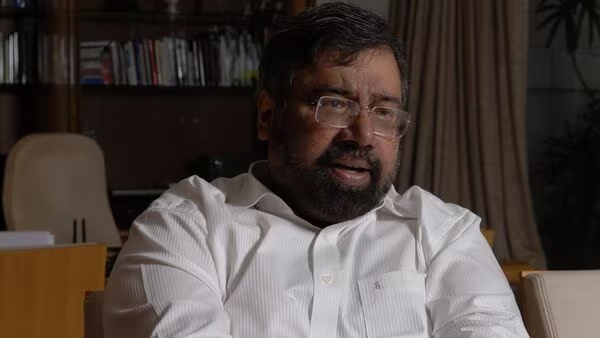In the last eleven years, a StartUp was launched every hour.The Department for Promotion of Industry and Internal Trade (DPIIT) has recognized a total of 1.76 lakh Startups. Further, over 48% StartUps have at least one-woman director.These recognized Startups have generated over 17.6 lakh direct jobs. Additionally, India is home to over 100 GenAI Startups, which have raised more than US$ 600 million since 2019. Overall, StartUps have raised more than Rs 13 lakh crore via funding from various sources, with VC funding alone, at a healthy Rs 1.44 lakh crore. Interestingly, over 32% of college graduates have turned to starting their own businesses rather than simply looking for a routine job. Over 40% of the StartUps come from tier-2 and tier-3 cities and towns, showcasing how the StartUp revolution unleashed under Prime Minister Narendra Modi’s leadership has been truly inclusive.
Don’t ever forget that prior to 2014, there were only 350 Startups and just 4 home-grown Unicorns. The Congress Party ruled India for 54 out of the first 67 years of post-independent India and yet in these lost decades,India was dominated largely by big businesses only. All that changed in the last 11 years, with the number of Startups rising dramatically. The number of Indian Unicorns too rose sharply from just 4 in 2014 to over 118 now.
What changed in 11 years? Well, abolition of 1562 outdated laws and 40,000 unnecessary compliances, decriminalization of many company law provisions, faceless assessment, relaxation of FDI norms, liberalization of drone rules and impetus to geospatial, space and defence sectors, have brought unprecedented energy to StatUps.
In 2023 alone, 90,309 patents were filed at the rate of 247 patents a day. The Modi government is a clear example of “Minimum Government, Maximum Governance”. The way ahead includes actionable plans. Easy availability of capital is essential for entrepreneurs. Rs 945 was sanctioned under the Startup India Seed Fund Scheme (SISFS) for a period of 4 years starting from 2021- 22. The Modi government has also established a fund of funds for StartUps (FFS), with a corpus of Rs. 10,000 crore. FFS has played a catalytic role in facilitating raising of domestic capital, reducing dependence on foreign capital and encouraging home grown ventures. The Modi government has also established the Credit Guarantee Scheme for Startups (CGSS) for providing credit guarantees to loans extended to recognized Startups.
Over 55 regulatory reforms have been undertaken since 2016 to enhance ease of doing business, ease of raising capital and to reduce compliance burden for the Startups. Further, Government e- Marketplace (GeM) also facilitates and promotes procurement of products and services by the Government from startups. StartUps are allowed to self-certify their compliance under 9 Labour and 3 Environment laws for a period of 3 to 5 years from the date of incorporation. StartUps incorporated on or after 1st April 2016 can apply for income tax exemption. A DPIIT recognized StartUp is eligible for exemption from the provisions of section 56(2)(viib) of the Income Tax Act. The recognized StartUps that are granted an Inter-Ministerial Board Certificate are exempted from income- tax for a period of 3 consecutive years out of 10 years since incorporation.Additionally, the Modi government has notified StartUps as ‘fast track firms’ enabling them to wind up operations within 90 days vis-a-vis 180 days for other companies.
The best example of how StartUps in emerging sectors are redefining the economic landscape are Biotech StartUps that have risen from just 50 in number ten years back, to as many as 9000, now. Similarly, Biotech incubators have risen from 6 to 75 in this period, while investments into the Biotech sector have risen from Rs 86,000 crore,to over Rs 11.18 lakh crore, within a span of just 11 years.From ideation to fruition requires execution of that germ of an idea that finally unlocks value both for the ideators and the public at large. But unlocking value cannot happen without a congenial ecosystem that rewards meritocracy and it is here that Prime Minister Modi deserves unabashed applause for unlocking India’s potential by promoting the 3Is–Inquiry, Insight and Innovation.
Over 60% of the Unicorn founders in India built a Startup valued at over $1 billion in their first attempt itself in the last 11 years, whereas only 29% took two attempts to build their first Unicorn. India is projected to have over 150 Unicorns in the fintech sector alone, worth over $500 billion, by 2030.Currently, India is home to many Unicorns including Zepto, Krutrim, InCred, Moneyview, Rapido, Slice, Licious, BharatPe, MyGlamm, Zeta, Groww, PharmEasy, Acko, BlackBuck, MamaEarth, Cars24,Cred,PhysicsWallah, Meesho, 5ire,GlobalBees, Mensa Brands, Unacademy, upGrad, Oxyzo, CoinDCX, CoinSwitch Kuber,Pine Labs, HighRadius, Udaan, Yubi, Hasura, Darwinbox, ShareChat, Spinny and Ola Electric, among others. Do you know what is common to all the aforesaid Unicorns? All of them not only started businesses in the last 11 years but even upgraded to becoming Unicorns in the last 11 years alone, which is not a mean achievement. Clearly, under the aegis of PM Modi,India’s Startup ecosystem, the 3rd largest in the world,celebrates meritocracy, not monopoly; innovation, not unwanted intervention.




















